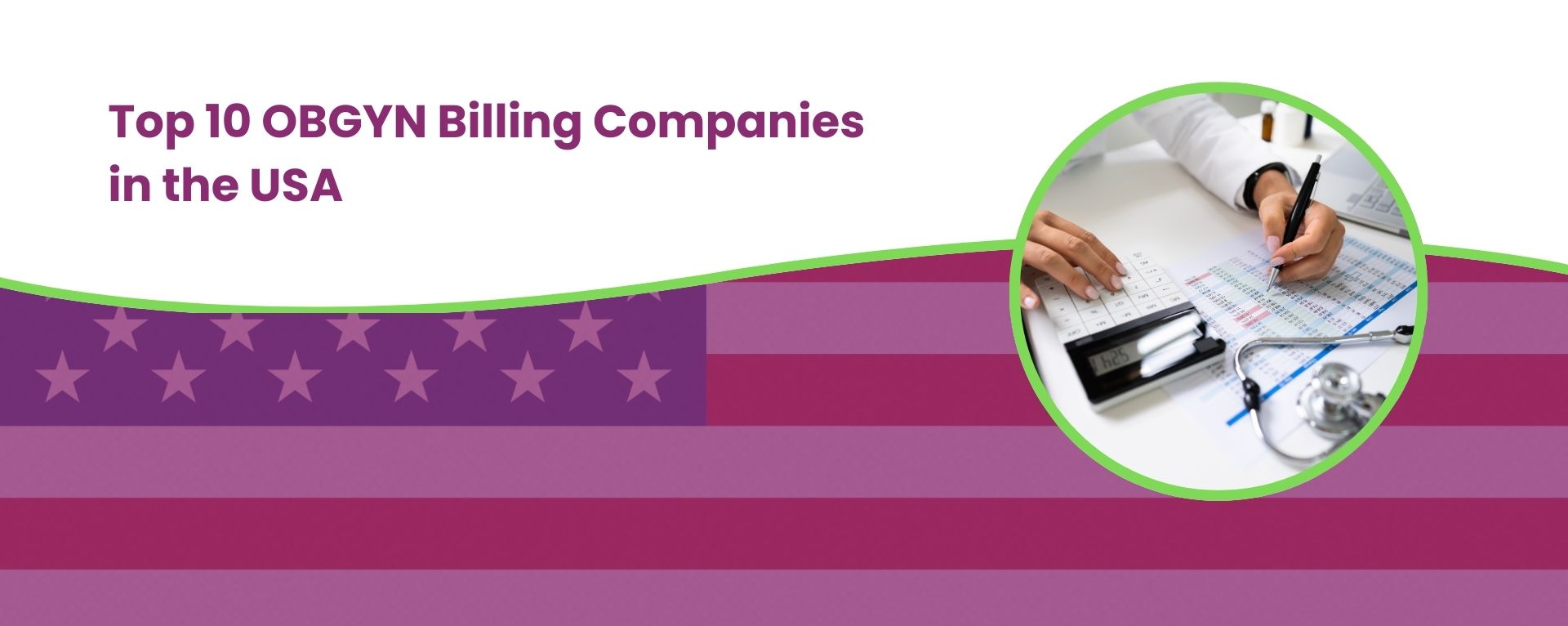Medical billing in New York is notoriously complex. Rising patient cost-sharing, value-based care requirements, complex state rules, and a diverse payer mix all add strain. All of this can overwhelm busy providers: one report found that New York’s evolving regulations and multi-payer system can boost billing overhead by 20–30%, adding hours of extra work per day. In practice, that means missed claims, billing backlogs, and revenue leaks.
A qualified medical billing company New York that truly understands the market can help practices reduce denials, ensure compliance, and safeguard precious cash flow. In this guide, we’ll break down why the choice matters in New York and provide a detailed checklist of criteria to evaluate any billing partner. We’ll also show how a specialized company like Transcure can help.

Table of Contents
ToggleWhy the Right Billing Partner Matters in New York
New York’s healthcare market is distinctive. For one, the state has among the highest Medicaid enrollment rates in the country, as well as a large share of Medicare and uninsured patients. Navigating that complex payer mix requires local expertise. New York also updates its regulations frequently, from Medicaid and public health updates to stringent surprise-billing laws, so compliance is a moving target. A billing company that fails to monitor these changes actively can trigger audits or rejections.
Additionally, New York practices face fierce financial pressure. A high cost of living and overhead means there’s little margin for error. Industry data indicate that nearly 20% of claims are initially denied, and shockingly, 60% of those denials are never resubmitted. That translates to real money: unresolved denials cost hospitals on average about $5 million per year. In other words, a practice could be losing thousands of dollars per month just by failing to catch and fix simple billing errors. On the other hand, experts note that up to two-thirds of denied claims are recoverable with proper follow-up.
For a New York provider, partnering with a billing company that understands local payers, regulations, and patient demographics is a necessity. The wrong choice can result in higher denial rates, slower reimbursements, and unexpected compliance issues. By contrast, a specialized billing partner can streamline workflows and recoup revenue: for example, Transcure ensures a 98% first-pass clean claim rate for its clients in New York, meaning nearly all claims get paid the first time they’re submitted.
Provider’s Checklist: Key Criteria
Use this checklist when evaluating any medical billing company New York. For each item, we explain why it matters in the context of New York practices:
1. Familiarity with New York Payer Mix and Regulations:
New York has dozens of private insurers, as well as state and federal programs (Medicare/Medicaid) that operate differently. A good billing partner should have experience with the local payer mix, including knowledge of NY-specific rules (for example, Medicaid guidelines, Medicare Advantage plans, and New York’s insurance regulations).
Ask a prospect if they have specialists for Medicare/Medicaid billing and whether they stay current on New York-specific laws. An experienced team of a medical billing company can avoid these issues by thoroughly reviewing payer rules prior to submission.
2. Specialty-Specific Experience:
Each medical specialty has unique coding rules and payer requirements. A cardiology practice’s claims won’t look the same as those of an oncology or dermatology practice. Look for a billing company that has proven experience in your specialty.
For example, only a specialized team will know that cardiology often needs Modifier 59 for bundled diagnostics or that mental health claims must align with DSM-5 diagnoses. Transcure, for instance, covers over 40 specialties so that they can tailor coding rules and appeals to your field.

3. HIPAA and Data Security Compliance:
Billing firms handle Protected Health Information (PHI), so security is non-negotiable. At a minimum, the vendor should be HIPAA-compliant. Also, check for state laws: New York’s SHIELD Act adds data breach protections on top of HIPAA. Transcure explicitly highlights “HIPAA-compliant systems” that meet the requirements of New York’s SHIELD Act.
Request proof of compliance from each billing partner (e.g., SOC 2 or ISO 27001 certifications) and ensure regular HIPAA training is provided to staff.
4. Technology and EHR Integration:
Your billing company should integrate seamlessly with your Electronic Health Record (EHR) and practice management system. Look for evidence of EHR interoperability: top firms list compatibility with systems such as Epic, Athenahealth, eClinicalWorks, and NextGen, among others. For example, Transcure highlights that its team is trained on “40+ EHRs” (Epic, eClinicalWorks, Athena, AdvancedMD, etc.).
Without proper integration, claims can be delayed or garbled. In short, ask to see a demo of how they’d connect to your systems. A good provider will minimize duplicate data entry and send “clean” digital claims directly to payers.
5. Transparent Pricing Model:
Medical billing firms usually charge as a percentage of collections or a flat fee. Ensure you understand exactly what is covered (e.g., credentialing, appeals, patient statements) and any additional fees (such as sign-up costs, EHR setup fees, or minimums). A reputable vendor will be upfront about fees. Beware of overly cheap bids that seem “too good to be true”; hidden charges often emerge later.
Compare pricing from several vendors. Paying a bit more for a partner that actually collects yields a better return on investment than a bargain-based service that leaves claims unattended.
6. Proven Track Record & References:
Finally, ask for references and look for reviews, especially from practices in New York. A strong indicator is if the billing company publishes case studies or client testimonials. For example, Transcure notes that it is “trusted by 500+ physicians” and has over 1,100 certified billers and coders supporting 40+ specialties. That scale suggests they’ve handled many NY scenarios.
Also, inquire about communication: you should have a dedicated account manager or point of contact. During transitions, you want hands-on support, not a faceless call center. In short, check their results: low denial rates, quick collection cycles, and documented client savings.

Why Transcure is a Top Choice in New York
Among the many options, Transcure Healthcare stands out for New York providers. In fact, a recent analysis of the top medical billing companies in New York puts Transcure at #1 for 2025. Their site highlights key strengths:
- Local Expertise: Transcure’s New York page emphasizes that they “stay ahead of New York’s changing healthcare regulations” and manage the specific requirements of major local payers. They offer dedicated services for every step of the billing cycle (eligibility checks, coding, claim submission, denial management, etc.), specific to NY rules.
- Large, Certified Team: They have 1,100+ AAPC/AHIMA-certified billers and coders across 40+ specialties. This breadth means they understand nuances across primary care, cardiology, and behavioral health. (In fact, Transcure advertises a 98% first-pass clean claim rate in New York, reflecting its specialists’ accuracy.)
- Robust Technology: Transcure uses Robotic Process Automation (RPA) and AI tools. For example, they report a 20% increase in revenue following the implementation of RPA-driven workflows. Their platform integrates with over 40 EHR/PM systems (including Epic, Athena, and NextGen), ensuring seamless data flow.
- Compliance and Security: Transcure is officially HIPAA and ISO 27001 certified, with encryption and access controls that satisfy both federal and New York’s SHIELD Act requirements. They also provide audit-ready records (coding notes, claim logs) and help clients with quality reporting (e.g., MIPS).
- Proven Results: According to Transcure’s website, data from HFMA indicates that avoiding billing mistakes can save a practice $70,000–$130,000 in losses. Their New York case studies mention clients boosting collections and minimizing write-offs. Transcure also notes being “trusted by 500+ physicians”, suggesting a strong track record.
In summary, Transcure bundles local know-how, specialized staff, and modern RCM tools. Their approach reduces denials and expedites payments, precisely what a New York practice needs.

Conclusion & Next Steps
Choosing the right medical billing partner is a critical decision for any New York provider. The ideal vendor will be proactive about New York’s rules, experienced in your specialty, and tech-oriented. By following this checklist, from payer familiarity and HIPAA compliance to checking client references, you’ll avoid the hidden revenue leaks.
Transcure Healthcare embodies these qualities for New York practices. Their specialized medical billing services address exactly the challenges NY providers face (from complex payer rules to tight reimbursement margins). If you’re ready to safeguard your revenue cycle, consider reaching out to Transcure for a consultation. Take control of your cash flow today by partnering with a billing company that understands New York inside and out.
Frequently Asked Questions (FAQs)
How soon will I see improvements after switching billing companies?
It depends on your current backlog, but many practices see noticeable changes within 1–3 months. Look for early signs, such as faster claim submissions and a decrease in denial rates. By month 2–3, you should be tracking key KPIs (first-pass claim rate, days in A/R) to confirm better performance.
What if I have multiple specialties in my practice?
A good billing partner will handle multi-specialty practices. For example, Transcure covers 40+ specialties. This ensures correct coding rules (modifiers, bundling, etc.) are applied for each type of service.
How is pricing typically structured for medical billing?
Vendors usually charge a percentage of collected revenue or a flat fee per claim. Some charge a small startup or monthly minimum. Get the pricing model in writing so you can compare.









